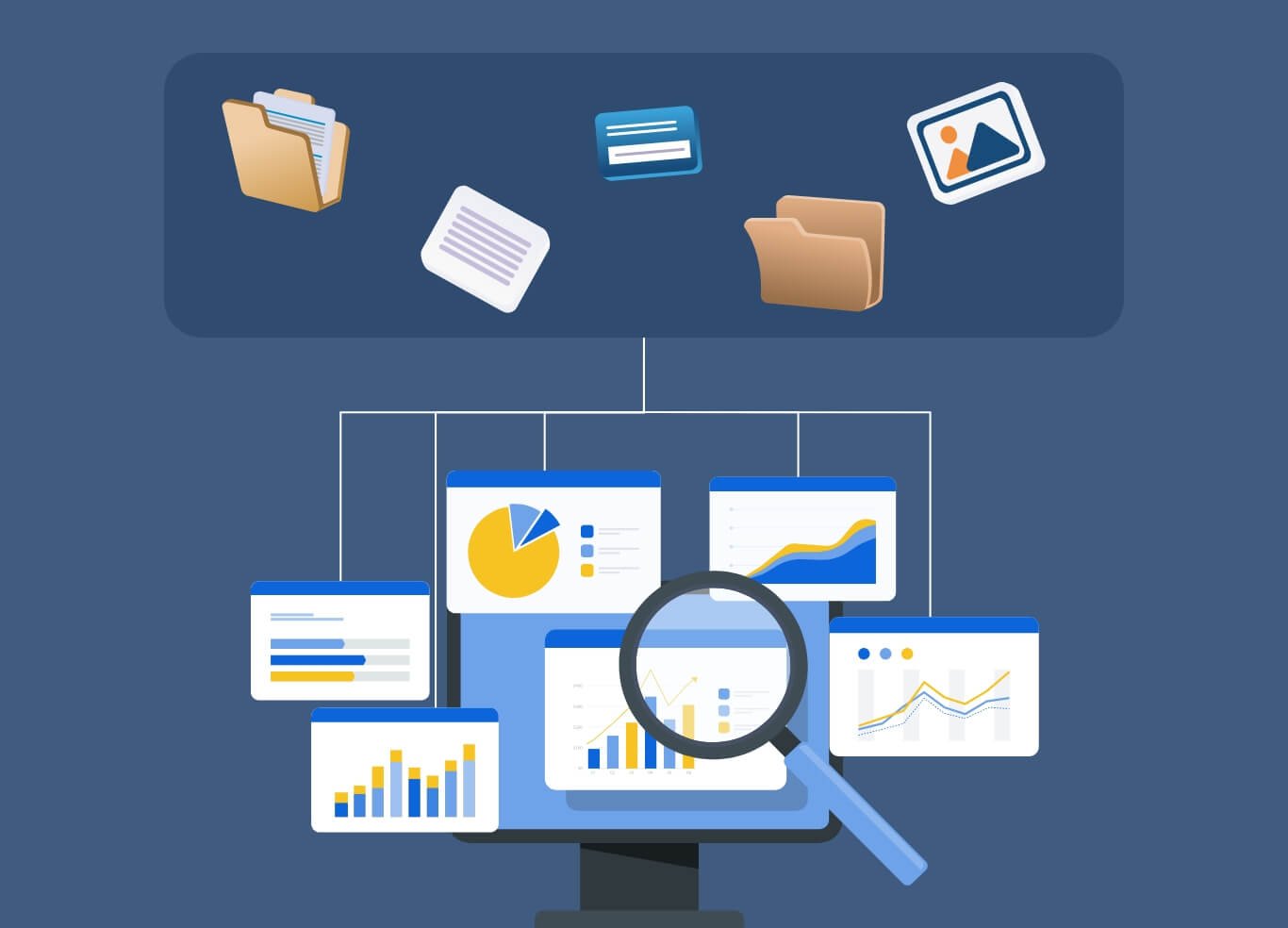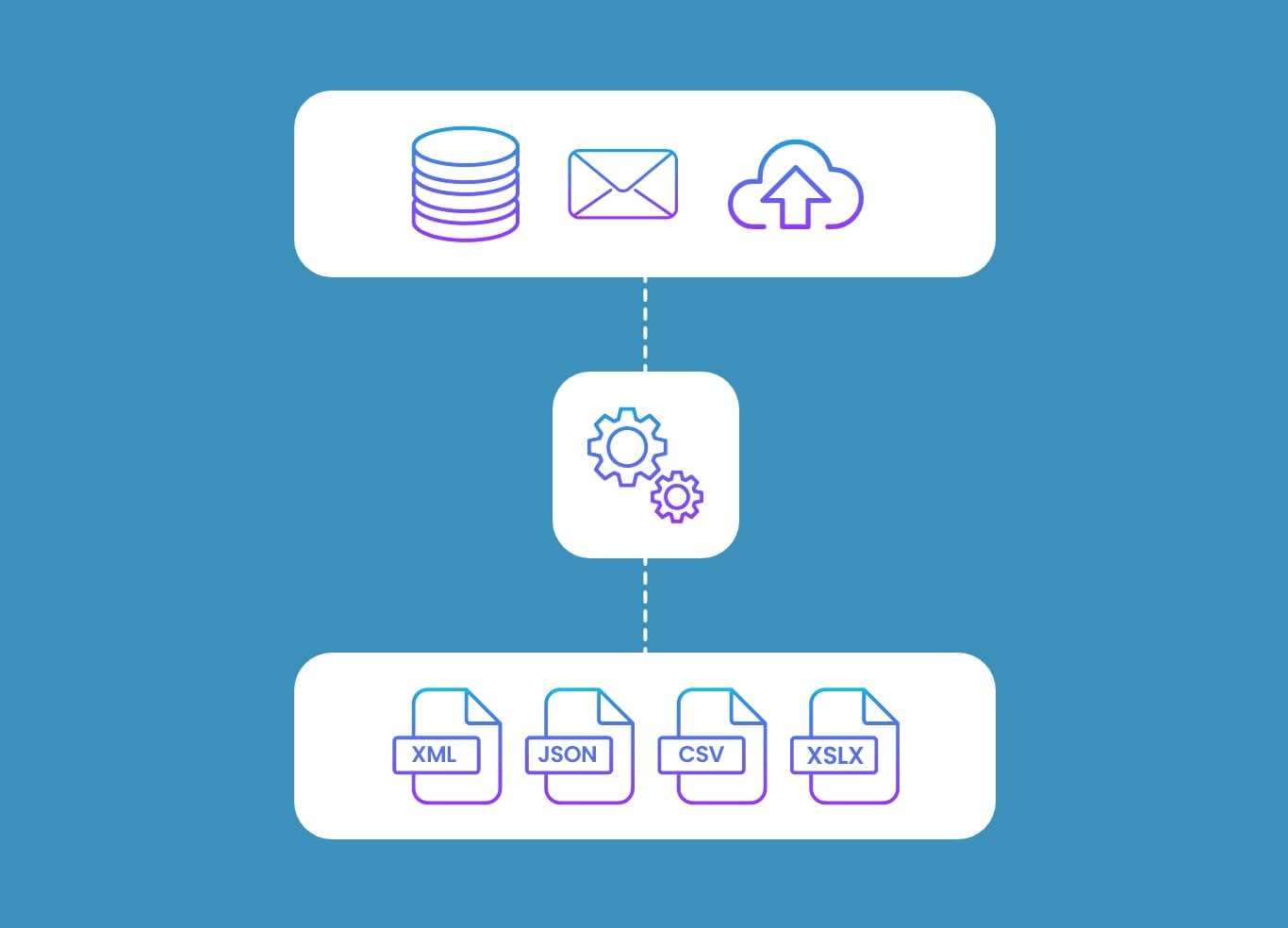Data is a crucial resource for the modern business landscape, enabling professionals to get access to in-depth insights. While the digital world is quick, dynamic, and constantly seeking novel ways to innovate, data is a primary aspect for every business sector, fueling growth and innovation to create a benchmark in the industry. From fulfilling customer demands to streamlining internal operations, data is derived from various sources and often comes in unstructured formats, making it ineffective for driving valuable insights.
Driving out valuable insights for businesses allows them to make informed decisions, streamline operations, enhance productivity, and open doors to opportunities. Many organizations from different sectors face challenges in adapting to the dynamic nature of the market. Moreover, to stay ahead and understand what pulls customers towards their brand for business growth and success.
Data brings key insights if utilized to its full potential. Whether a startup or a large-scale business, a common aspect that remains the same is conducting full-fledged research on the market, consumers, demand, and upcoming trends. The in-depth research provides professionals with an understanding to develop strategies, revamp old workflows, enhance operations, and seize new opportunities.
In the fast-paced world of market research and consumer surveys, data is the ultimate currency. However, collecting the data is only half the battle, as it is often in a raw, unstructured format, making it complex to understand. The true challenge and the key to unlocking meaningful insights lies in efficiently and accurately extracting, organizing, and preparing that data for analysis. Adopting web data extraction services is a holistic solution for effective business management, staying ahead of the market, and driving valuable insights.
Especially for market research and survey firms, this process of collecting and generating data is critical. Juggling data from online surveys, social media, web scraping, proprietary databases, and more can quickly become a bottleneck, leading to piled resources and inefficiency. Thanks to market research data extraction approaches, which come in, transforming large volumes of raw, diverse data into clean, structured datasets ready for robust analysis. With rapid technological innovation, data extraction for market research has become increasingly popular. Let’s understand in detail what data extraction is and how it helps in accurate market research.
Streamline Business Workflow with Market Research Data Extraction
What is Data Extraction for Market Research?
In the field of modern businesses, where data is king, appropriate utilization is key to success. Gone are the days when large volumes of data were manually analyzed to uncover details and hidden insights. This consumed crucial time and resources, leading to inefficiency in business workflow. Thanks to the digitized approach and growth of the modern business landscape, web data extraction services have become a game-changer to extract insights from massive databases.
It is a process of uncovering insights that helps professionals make data-driven decisions, create a clear structure, and enhance business operations. Data extraction is a dynamic process that involves the collection of data from multiple platforms such as web pages, social media, documents, existing databases, and more. Later, the information is stored, transformed, and analyzed to extract valuable data, leading to data-driven decisions. The following are some of the significant advantages of web data extraction services;
Benefits of Data Extraction Services
Enhanced Decision-Making
Improved Data Quality and Accuracy
Competitive Advantage
Increased Efficiency & Productivity
Cost Savings
Scalability
- Enhanced Decision-Making: Provides accurate, up-to-date data for analysis, leading to more informed, data-driven strategies.
- Increased Efficiency & Productivity: Automates the time-consuming process of manual data collection, freeing up employees for higher-value tasks.
- Improved Data Quality and Accuracy: Automated processes minimize human error, ensuring more reliable and consistent data.
- Cost Savings: Reduces operational costs associated with manual labor and the errors it can introduce.
- Competitive Advantage: Enables quick access to market trends and competitor activities for timely strategic adjustments.
- Scalability: Easily handles increasing volumes and a variety of data as the business grows.
Data extraction for market research is the first and most vital step in the data integration process. It involves retrieving data from various sources, platforms, and formats, and preparing it for loading into a central data repository, such as a cloud data warehouse, database, or target system, for further analysis. For survey and market research firms, this typically involves;
- Identifying Data Sources: This could be internal databases, online survey platforms (Qualtrics, SurveyMonkey), social media APIs, web pages for competitor pricing, open-text qualitative responses, and more.
- Retrieving the Data: Using appropriate methods (APIs, web scraping, SQL queries) to pull the relevant information.
- Preparing for Transformation: Delivering the extracted raw data to a staging area for the next steps of cleansing and structuring.
This is generic; however, it depends on the complexity of the database and the type of project, as objectives or goals vary from one another. Typically, data extraction for survey firms or market research isn’t as easy as it sounds. This demands expertise, knowledge, technology proficiency, the ability to handle complex databases, and more. Hiring an in-house team is ineffective; therefore, the key solution is to outsource data extraction services to a renowned service provider.
As a matter of fact, the market research concept faces various challenges, including missing values, large databases, unclear structure, mismatched details, and more. Collecting information of interest from multiple sources is not only complex but also time-consuming for businesses.
These challenges in market research data extraction can affect overall performance, business workflow, insights generation, and more. The following are some key challenges in market research that can hinder the professional team.
Major Data Extraction Challenges in Market Research
The rapid growth in the economy and the transformation from the traditional to the digital era have shifted businesses’ work approach. Data as a king is a primary resource for successful and escalated business plans. Data alone cannot achieve anything, as it is evident that it cannot drive key insights for making decisions, improving productivity, and staying ahead in the competition. Market research is an approach that collects data from multiple platforms based on the subject of interest. While collection is a vital and relatively easy part, the subsequent process becomes challenging due to a variety of hurdles. To eliminate these hurdles, let’s look into the significant challenges;
- Data Quality and Accuracy: Raw survey data often contains incomplete entries, missing values, and inconsistencies across different collection tools, which can compromise the final analysis.
- The Complexity of Data Sources: Market research pulls data from a disparate ecosystem: structured survey files (CSV, SPSS), semi-structured data (JSON/XML from APIs), and unstructured qualitative text. Extracting data consistently across these varied formats is challenging.
- API and Connector Management: Relying on APIs (Application Programming Interfaces) from platforms like Facebook, Twitter, or even specific survey tools means dealing with non-standardized documentation, frequent changes, and the risk of broken data pipelines.
- Data Security and Privacy: Market research often deals with sensitive PII (Personally Identifiable Information) or proprietary consumer data. Extraction processes must be highly secure and compliant with global regulations like GDPR and CCPA.
- Integration Difficulties: Extracted data needs to seamlessly integrate with a firm’s existing systems, such as their chosen BI (Business Intelligence) platform or analytical software (e.g., SPSS, R, Python environments).
These are the challenges; however, they can vary depending on the project. Once these challenges are overcome and the defined information is obtained, web data extraction services become easier, more accurate, and more efficient for driving valuable insights. However, the data extraction process requires significant tools and the use of the latest software for accurate information extraction. Explore in detail which automated data extraction tools are substantial and can speed up the process.
Top Data Extraction Tools and Techniques
Technology is dynamic, constantly evolving to simplify the process. Data extraction, as a complex approach, demands high-end technology and software to derive insights from data sources. Businesses find novel ways to reduce extra expenses by partnering with data extraction companies, as outsourcing partners have access to the latest technology tools and software. Utilizing the right technology helps to bring advanced and accurate results for data extraction. The following are some data extraction techniques and tools. The right tool depends on your firm’s specific data sources, scale, and technical capabilities.
Best Tools for Data Extraction Services
Web Scraping and Parsing
Optical Character Recognition (OCR)
Email Parsing
API Calls
Database Querying
File Parsing
Natural Language Processing (NLP)
- Web Scraping and Parsing: Automated extraction from websites using tools like BeautifulSoup or Selenium, or specialized services.
- API Calls: Requesting structured data (e.g., JSON, XML) directly from applications or services through their APIs.
- Optical Character Recognition (OCR): Converting text in images, scanned documents, or PDFs into machine-readable and searchable data.
- Database Querying: Using commands like SQL to retrieve data directly from a relational database.
- Email Parsing: Connecting to email servers to pull data from the content and attachments of emails.
- File Parsing: Reading and processing data from standard file formats like CSV, JSON, XML, or Excel using programming libraries such as Pandas.
- Natural Language Processing (NLP): Using techniques like named entity recognition (NER) to identify and extract specific information from unstructured text.
The Future of Market Research
The landscape of market research is rapidly evolving. The ability to source, extract, and analyze data from diverse and complex streams determines a firm’s competitive edge. Investing in automated data extraction solutions powered by AI and robust ETL/ELT technology is the most effective way for market research and survey firms to move past time-consuming manual tasks and focus entirely on delivering timely, accurate, and high-impact consumer insights.
Outsource Data Extraction for Accuracy
As briefly discussed, data extraction plays a crucial role in collecting significant information, requiring efficiency, keen attention to detail, and the use of the latest technology. Businesses conducting market research and survey firms seek cost-effective paths and efficient outcomes without investing large amounts of capital and resources. This is where the outsourcing concept is a game-changer, enabling firms to partner with experts for data extraction services. There are a variety of benefits to outsourcing web data extraction, from cost efficiency to access to resources and the latest technology. Outsourcing service providers ensure the timely delivery of projects and offer several advantages that allow businesses to grow, streamline operations, and enhance productivity. The following are some of the key perks of outsourcing data extraction;
- Transparent pricing
- Free trial
- Access to technology
- Expertise knowledge
- Timely delivery
- Dedicated team
These are the primary benefits of partnering with service providers. Uniquesdata is a top data management outsourcing company with expertise in data extraction for various business sectors. A team of professionals ensures keen efficiency and on-time project delivery.
In the End
Web data extraction services are a game-changer for survey firms, market research processes, and other businesses. Businesses can uncover hidden insights from massive datasets, make data-driven decisions, stay ahead in the marketplace, and enhance business operations. Extracted data is further stored for future analysis and streamlining workflow.



